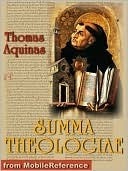More on this book
Community
Kindle Notes & Highlights
Whatsoever is found in other sciences contrary to any truth of this science must be condemned as false:
"They that explain me shall have life everlasting"
Hence no argument, but only fallacies, can be deduced from a multiplicity of propositions.
incorporeal substances are not in space."
what is naturally desired by man must be naturally known to him.
Therefore what subsists in God is His existence.
"Goodness is what all desire."
to His goodness rather than to His being.
Non-being is desirable, not of itself, but only relatively--i.e. inasmuch as the removal of an evil, which can only be removed by non-being, is desirable.
desirability.
faculty.
it is by our will that we employ whatever powers we may have.
absolute being and absolute oneness;
multitude in nature is created;
Now the divine being is not successive but permanent.
Further, what is wholly in any one place is not in part elsewhere.
Canticle
time, which is nothing but the numbering of movement by before and after. For since succession occurs in every movement, and one part comes after another, the fact that we reckon before and after in movement, makes us apprehend time,
the expression "simultaneously-whole" is used to remove the idea of time, and the word "perfect" is used to exclude the "now" of time.
"The now that flows away makes time, the now that stands still makes eternity;"
for inasmuch as time corresponds to movement, its "now" corresponds to what is movable;
the flow of the "now" as alternating in aspect is time.
repose,
time is not a number abstracted from the thing numbered, but existing in the thing numbered;
nugatory
what is absolutely one is relatively many, and vice versa.
For how can a creature see what is increatable?"
Since everything is knowable according as it is actual, God, Who is pure act without any admixture of potentiality, is in Himself supremely knowable.
Hence it does not follow that He cannot be known at all, but that He exceeds every kind of knowledge; which means that He is not comprehended.
"We know that when He shall appear, we shall be like to Him, and [Vulg.: 'because'] we shall see Him as He is"
"When we know God, some likeness of God is made in us."
Two things are required both for sensible and for intellectual vision--viz. power of sight, and union of the thing seen with the sight.
He cannot be seen by the sense or the imagination, but only by the intellect.
But that the divine presence is known by the intellect immediately on the sight of, and through, corporeal things, happens from two causes--viz. from the perspicuity of the intellect, and from the refulgence of the divine glory infused into the body after its renovation.
Therefore to see the essence of God is possible to the created intellect by grace, and not by nature. I answer that, It is impossible for any created intellect to see the essence of God by its own natural power.
"I have heard secret words which it is not granted to man to utter"
the more our soul is abstracted from corporeal things, the more it is capable of receiving abstract intelligible things. Hence in dreams and alienations of the bodily senses divine revelations and foresight of future events are perceived the more clearly.
Our natural knowledge begins from sense.
Reason cannot reach up to simple form, so as to know "what it is"; but it can know "whether it is."
the divine ray
"God ( Theos ) is so called from theein which means to take care of, and to cherish all things; or from aithein that is, to burn, for our God is a fire consuming all malice; or from theasthai, which means to consider all things."
precious promises,
For where a diverse signification exists, there is no contradiction of affirmation and negation; for equivocation prevents contradiction.
Any intellect which understands that the thing is otherwise than it is, is false.
Hence knowledge is not a quality of God, nor a habit; but substance and pure act.
"Every knower who knows his own essence, returns completely to his own essence."
the object understood is the perfection of the one who understands.


